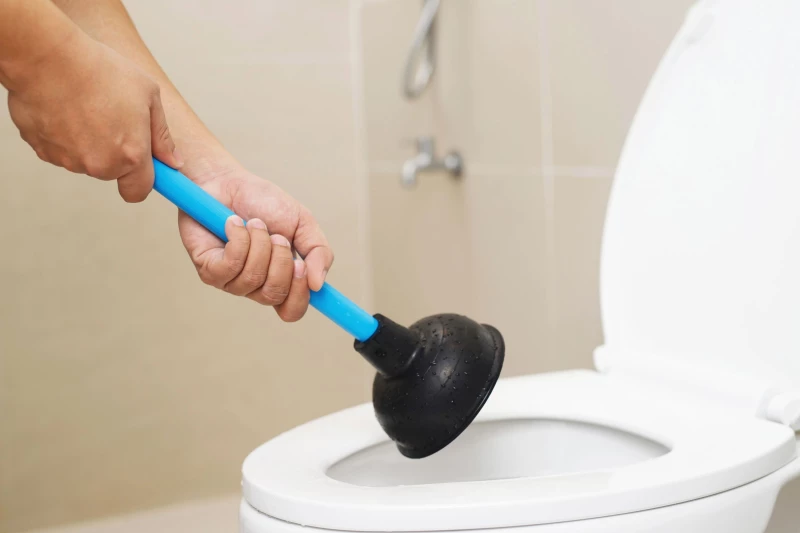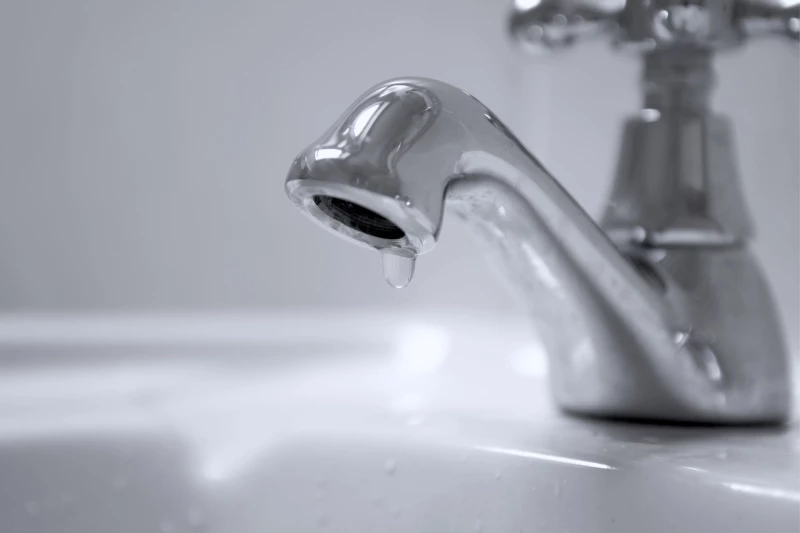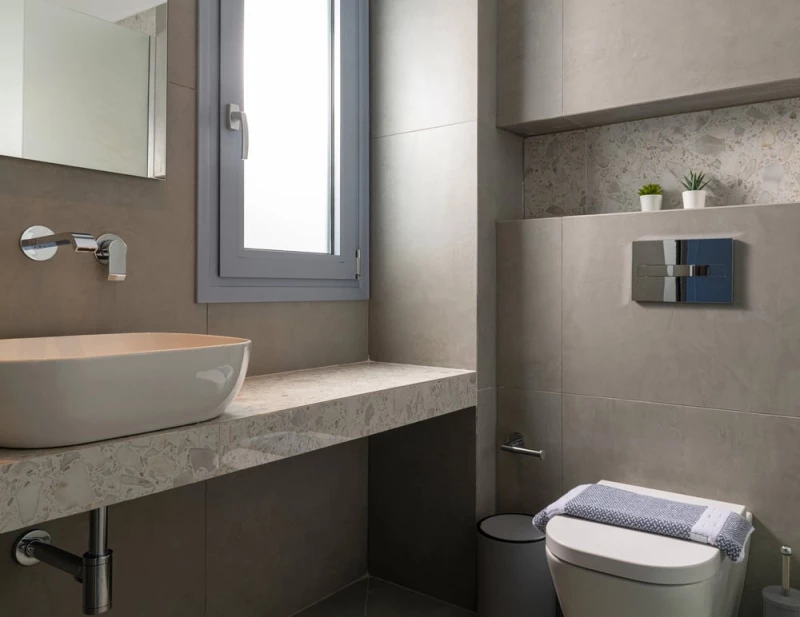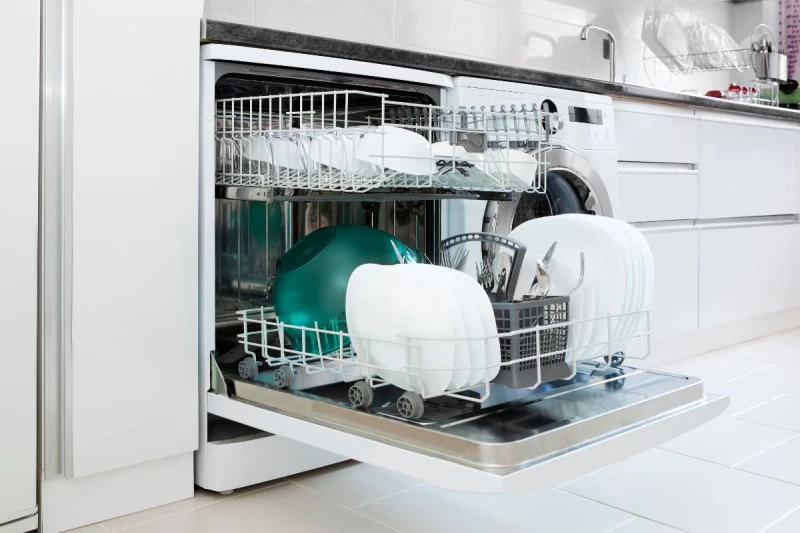There are few household mishaps that are as inconvenient as a clogged toilet. Whether it’s a result of excessive toilet paper usage, a foreign object finding its way down the drain, or a buildup of organic matter, a blocked drain can quickly turn into a messy situation if not addressed promptly. Looking for more info on how to unblock a toilet? In this article, we’ll delve into what you can do to try and fix a blocked toilet. Additionally, we’ll discuss some preventive measures you can take to minimise the likelihood of another blocked toilet, saving you time, money, and inconvenience in the future.
Think you need a plumber to take a look at your blocked toilet? We regularly attend homes with a severely blocked toilet. Don’t hesitate to call us ASAP if you can’t get your toilet unblocked!
Common causes of a blocked toilet
First, it is important to understand what leads to a blocked toilet so you know how to rectify it.
- Excessive toilet paper usage: One of the most common culprits of toilet blockages is the excessive use of toilet paper, especially if large wads are flushed at once.
- Foreign objects: Items such as sanitary products, baby wipes, cotton balls, dental floss, or small toys accidentally flushed down the toilet can easily cause blockages.
- Hair: Hair can accumulate in the drain pipes over time, especially if someone with long hair uses the toilet frequently, leading to clogs.
- Toilet fresheners: Toilet fresheners, especially those with gel-like consistency, can dissolve slowly and accumulate in the pipes, contributing to blockages.’
- Hard water deposits: Mineral deposits from hard water can build up over time, narrowing the passage in the pipes and causing blockages.
- Tree roots: In outdoor toilets or those connected to a septic tank, tree roots can grow into the pipes, causing blockages and damage to the plumbing system.
- Low-flow toilets: Older low-flow toilets may not have enough flushing power to push waste through the pipes effectively, leading to frequent blockages.
- Faulty flush valve: A malfunctioning flush valve can prevent the toilet from flushing properly, resulting in incomplete flushing and subsequent blockages.
- Sewer line issues: Problems in the main sewer line, such as clogs or collapses, can cause toilets to back up and become blocked.
- Improper installation: Incorrect installation of the toilet or plumbing system can lead to misalignment or poor drainage, increasing the likelihood of blockages.
- Collapsed pipes: In rare cases, pipes may collapse due to age, corrosion, or external pressure, obstructing the flow of water and waste.
Methods you can try to unblock a blocked toilet
There are quite a few methods you can attempt to get your clogged toilet back to working as normal again. These include:
1. Using a plunger
Start by using a plunger, which is one of the most effective tools for clearing any plumbing system blockage. Place the plunger over the drain opening and push down firmly, then pull up sharply to create suction. Repeat this motion several times until the blockage is dislodged and water starts draining normally.
2. Hot water
If the plunger doesn’t work you can try some other methods. Pouring hot water into the toilet bowl first can help dissolve or soften the blockage, making it easier to flush away. Use hot (but not boiling as this can damage the toilet) water and pour it down. Let it sit for a few minutes before attempting to flush again
3. Baking soda and vinegar
Natural drain solutions, like a mixture of baking soda and vinegar can help break down organic matter causing the blockage. Pour about one cup of baking soda into the toilet bowl, followed by two cups of vinegar. Allow the mixture to fizz and react for about 10-15 minutes, then flush the toilet to see if the blockage has cleared.
4. DIY drain snake with a wire coat hanger
Plumbers use specialised drain snakes or augers to tackle stubborn blockages. Now, we don’t expect you to have one of these in your homes but we can provide you with a DIY solution. Straighten a wire coat hanger and use it to gently probe and dislodge the blockage. Be careful not to scratch the porcelain toilet bowl while doing so.
5. Enzyme cleaner
Enzyme-based toilet cleaners can be effective in breaking down organic matter and clearing blockages without causing damage to the pipes. Follow the instructions on the product label for best results.
6. Detergent
Squirt a generous amount of detergent into the toilet bowl and let it sit for a while to lubricate the pipes, then pour hot water into the bowl. The combination of detergent and hot water can help break down the blockage and facilitate flushing.
How to prevent a blockage in the future
Now whilst it is quite simple to unblock a blocked toilet, it’s not something you want to be dealing with regularly. When blockages form deep into the drain lines, they’ll need professional help from a plumber to unclog without further damage. In some situations, you may even need a CCTV drain camera inspection to get to the root cause. Here’s some things you should do to ensure your toilets continue to remain unblocked into the future.
Encourage your household to practise good habits
Encourage household members to avoid flushing items such as sanitary products, baby wipes, cotton balls, and paper towels down the toilet as these are some of the most common causes of blocked toilets.
Carry out regular plumbing inspections
Regularly inspect your toilet and plumbing system for signs of potential problems, such as slow drainage, gurgling noises, or foul odours. Addressing these issues promptly can help prevent blockages from forming and save you from more costly repairs down the line.
Did you know? All members of Swan’s Professional Plumbing are entitled to a FREE plumbing health check each year? Learn more about a plumbing membership program.
Upgrade your toilet
If you have an older low-flow toilet that frequently experiences blockages, consider upgrading to a newer model with improved flushing power. Modern high-efficiency toilets are designed to use less water while still providing effective flushing, reducing the likelihood of blockages.
Fix any suspected toilet blockages or leaks as soon as you notice them
If you suspect a leak or blockage in your toilet or plumbing system, don’t delay in taking action. Even small leaks or minor blockages can escalate into larger problems if left unattended.
Call Swan’s Professional Plumbing for help with blocked toilets
Remember, the experienced plumbers at Swan’s Professional Plumbing are always here to help. If you tried all the DIY methods with no luck, it’s time to call out our friendly team. Clogged toilets are a pretty common plumbing problem, so rest assured our plumbers know
exactly how to handle the situation efficiently and effectively. Give us a call, and we’ll have your plumbing back working in no time.




